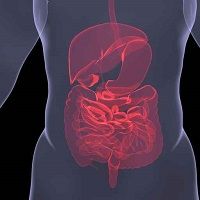Mental Disorders Cloud Outlook in GI Conditions
Implanting an electrical stimulating device to help patients with gastroparesis is less successful when patients also suffer from depression, anxiety, or other mental health problems, a Texas team reports.

Patients who have anxiety, depression or other mental disorders are less likely to respond to medical treatment for gastrointestinal problems, a Texas team reports.
In an abstract presented at the 2015 Digestive Disease Week conference in Washington, DC, Anam Hameed, MD, and colleagues at the University of Texas Health Science Center at Houston and the MD Anderson Cancer Center, both in Houston, TX report on the difficulties in helping these patients.
The team’s study focused on whether long term clinical response to treatment for severe gastroparesis differed if patients also had anxiety and depression.
All patients had gastroparesis that had not responded sufficiently to treatment and had surgery to implant gastric electrical stimulators.
Their symptoms at baseline were vomiting, nausea, early satiety, bloating, and post-prandial fullness. Abdominal pain, epigastric burning, the need for pharmacotherapy and enteral nutrition were also assessed at baseline and at 1,2, and 3 years after the device was implanted.
There were 53 patients, 77% of them women, and their mean age was 42.
Thirty-two percent of the subjects had a known psychiatric disorder when initially seen for treatment; most of the time that was depression.
Though the baseline gastrointestinal symptom scores were similar at baseline, the non-psychiatric group showed significantly more improvement at 1-year after the implant than the group with mental health problems.
Measured on the gastroparesis cardinal symptom index, a scale of 0 to 4 with 4 being the worst, the patients with no mental disorder had an average score of 2.64 at baseline and 1.64 after 1 year.
In the group with psychiatric disorders the baseline score averaged 2.50 and dropped to only 2.18 1 year after getting the implant.
By 3 years after the procedure, the group without mental health problems had an average score of 1.88 while the group with depression or similar issues had an average of 2.12.
Both groups continued to report some nausea but the non-psychiatric group showed more improvement with scores dropping from 3.76 at baseline to 2.75 at 3 years compared to a drop from 2.97 to 2.71 in the mental-health problem group.
The team concluded that while the procedure combined with medical treatment did “improve long-term clinical response consistently” the clinical outcome was significantly better in the absence of a psychiatric disorder.”
Before deciding whether gastric stimulator implantation is a good idea, “gastroparesis patients with refractory symptoms should be screened for coexisting psychiatric disorder,” they wrote.